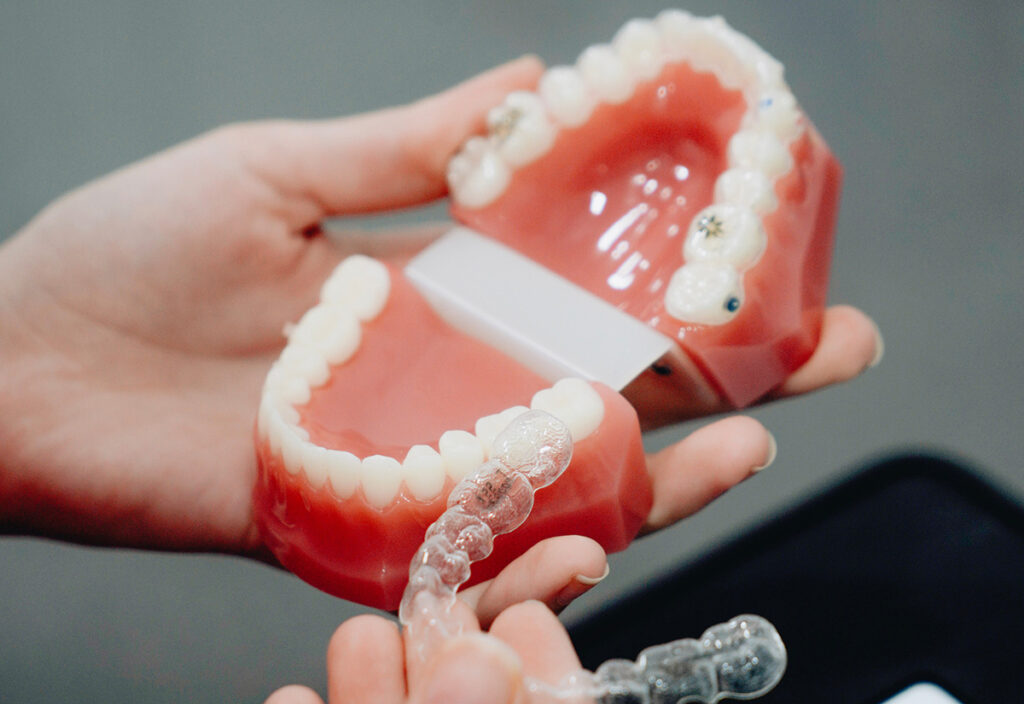Dental Clinics
Why a Holistic Dental Clinic
This novel approach to dental care is known as holistic dentistry, and it differs from traditional dentistry in that, rather than focusing solely on the patient’s teeth, the dentist treats the patient as a whole. This indicates that they take into consideration the individual’s bodily health, mental health, and spiritual well-being in addition to their traditional measures of health.

What exactly is a holistic dentist supposed to do?
Dentists who practice holistic dentistry are trained to diagnose and treat a variety of dental diseases, including tooth decay, gum disease, tooth infection, enamel degradation, and dry mouth. A holistic dentist does not place a primary emphasis on dental cleaning but rather provides information to encourage good personal oral hygiene.
A dentist who is committed to the use of complementary and alternative procedures is known as a holistic dentist. In most cases, this indicates that they offer therapeutic choices that are derived from natural sources. First and foremost, they are firm believers in the tenets of holistic treatment. That indicates that they feel there is a connection between a person’s oral health and their overall health.
Holistic dentists are general dentists who have dental degrees and dental licenses. They often focus on preventing dental diseases such as gum disease and cavities, which are both common dental problems. On the other hand, rather than prescribing conventional medications, they focus on providing natural remedies and care. They are both licensed dentists and alternative dentists, and when necessary, they integrate traditional and alternative dental practices.
A holistic dentist will tell you that your oral health is affected by any sickness that manifests in your body. They also encourage individuals to take responsibility for maintaining their own dental hygiene.

Holistic dentists are often also called :
●Natural dentistry
●Biological dentistry
●Alternative dentistry
●Preventive dentistry
What Kind of Services do they offer in Holistic Dental Clinics?
A holistic dentist will take care of their patients’ teeth and oral health in the same manner as a conventional dentist would. A holistic dentist is a subspecialty of general dentistry that has an emphasis on the following areas:
- Flossing
- Brushing
- Medicinal therapies
A holistic dentist may also suggest further treatments, such as the following:
- Alterations to the way that you eat
- Herbology (using plants to treat sickness) (using herbs to treat disease)
- Homeopathy
- Healing on a spiritual level
- Treatment with a cold laser for diseases of the temporomandibular joint (TMD)
Dentists who practice holistic dentistry are trained to diagnose and treat a variety of dental diseases, including tooth decay, gum disease, tooth infection, enamel degradation, and dry mouth. A holistic dentist does not place a primary emphasis on dental cleaning but rather provides information to encourage good personal oral hygiene.
Fluoride treatments are typically looked down upon by holistic dentists, in contrast to traditional dentists. Additionally, they are against utilizing materials containing amalgam for dental implants. Because amalgams contain mercury, patients who receive them post-placement may have sensitivity. There is also the possibility that some bacteria will remain, which could result in the need for more dental work.
Instructional Methods and Programs
Traditional dentists and holistic dentists go through the same levels of education and training. Any general dentist must have graduated from a dental school that has been recognized as legitimate (accredited). The training of holistic dentists typically includes additional coursework in specialized areas of holistic medicine.
In order to obtain a license to practice dentistry, a person is required to have:
- At least a bachelor’s degree.
- A degree of Doctor of Dental Surgery (DDS)
- Doctor of Medicine in Dentistry (DMD), which takes four years to complete.
Successfully completed all sections of the National Board Dental Examination and received a passing score on a practical examination administered by a state or regional dental board (some state exceptions exist)
Additionally, holistic dentists are required to adhere to state licensure regulations.
Every state has its own system for doing things.
